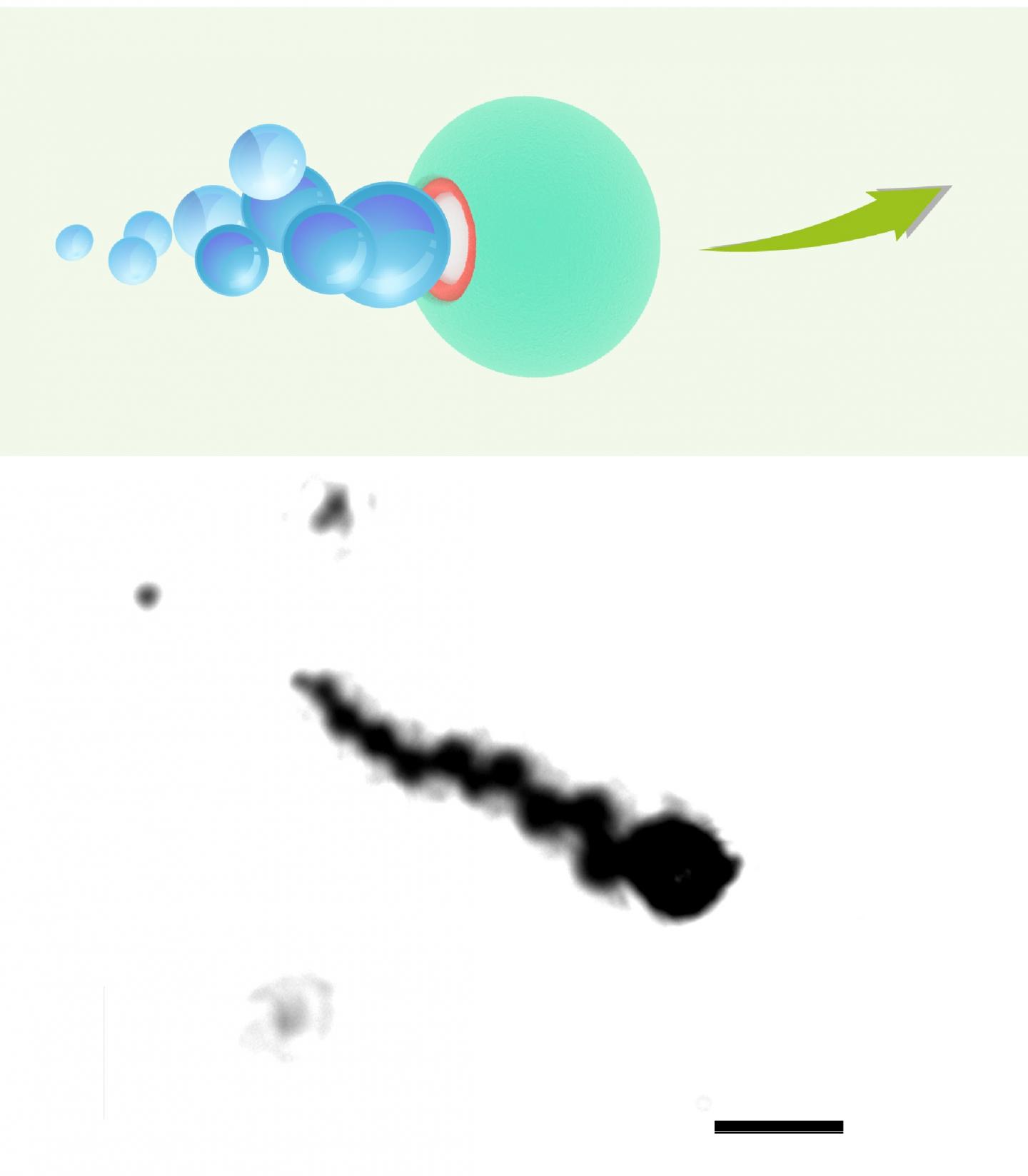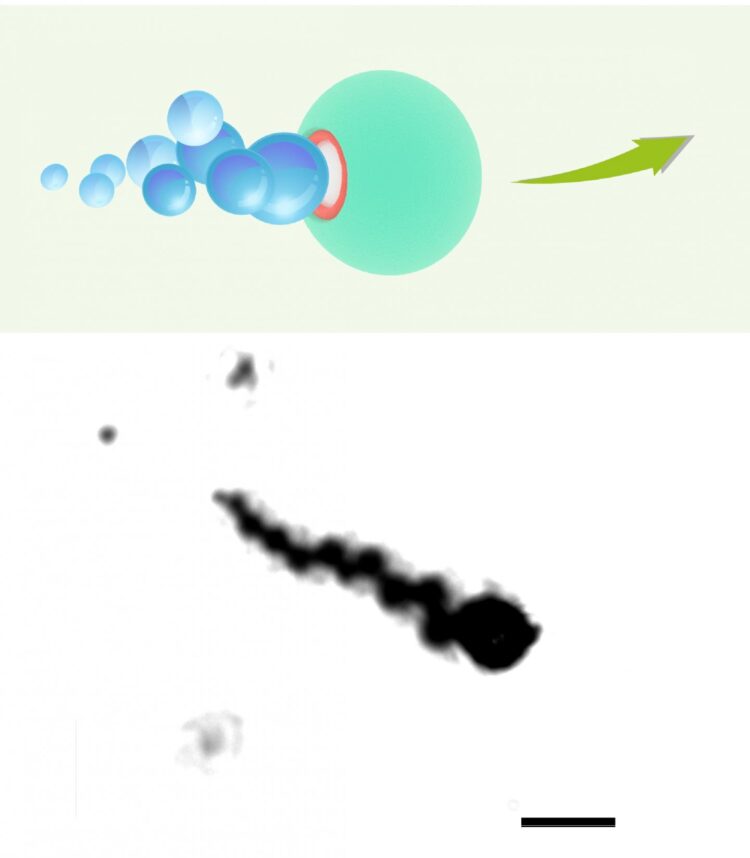
Credit: Adapted from Nano Letters 2021, DOI: 10.1021/acs.nanolett.0c04438
Rheumatoid arthritis is a chronic inflammatory disorder marked by joint pain, swelling and damage. Although medications, such as steroids, anti-inflammatory drugs and immunosuppressants, can help slow joint destruction and relieve pain, they have side effects and aren’t completely successful. Now, researchers reporting in ACS’ Nano Letters have developed magnesium-based micromotors propelled by hydrogen bubbles, which improved rheumatoid arthritis symptoms when injected into the joints of rats.
Scientists have linked rheumatoid arthritis development to the excess production of reactive oxygen species (ROS). ROS can oxidize and degrade cartilage and bone, as well as activate the expression of inflammatory cytokines. A new type of therapy, hydrogen gas, can neutralize ROS and decrease inflammatory cytokine levels when given to patients in drinking water. However, the gas is poorly soluble in body fluids and quickly eliminated when given orally, limiting its therapeutic effects. Fei Peng, Yingfeng Tu, Yingjia Li and colleagues wanted to find a way to produce and deliver hydrogen gas directly inside an inflamed joint.
The researchers based their system on magnesium-based micromotors — tiny spheres that react with water to produce hydrogen bubbles, which propel the motors. They coated the micromotors with hyaluronic acid, a joint lubricant, leaving a small opening for the magnesium to react with water. When placed in simulated joint fluid, the micromotors showed prolonged, sustained release of hydrogen bubbles and could move on their own. The team then injected the micromotors into the joints of rats that served as an animal model of rheumatoid arthritis and used ultrasound to visualize them. Compared with uninjected rats, the treated rats showed less-swollen paws, reduced bone erosion and lower levels of inflammatory cytokines. Although the micromotors still need to be tested in humans, they show great potential for the therapy of rheumatoid arthritis and other inflammatory diseases, the researchers say.
###
The authors acknowledge funding from the National Natural Science Foundation of China, the Guangzhou Municipal Science and Technology Project and the Key Research and Development Project of Lishui.
The paper’s abstract will be available on Feb. 24 at 8 a.m. Eastern time here: http://pubs.
For more of the latest research news, register for our upcoming meeting, ACS Spring 2021. Journalists and public information officers are encouraged to apply for complimentary press registration by emailing us at [email protected].
The American Chemical Society (ACS) is a nonprofit organization chartered by the U.S. Congress. ACS’ mission is to advance the broader chemistry enterprise and its practitioners for the benefit of Earth and all its people. The Society is a global leader in promoting excellence in science education and providing access to chemistry-related information and research through its multiple research solutions, peer-reviewed journals, scientific conferences, eBooks and weekly news periodical Chemical & Engineering News. ACS journals are among the most cited, most trusted and most read within the scientific literature; however, ACS itself does not conduct chemical research. As a specialist in scientific information solutions (including SciFinder® and STN®), its CAS division powers global research, discovery and innovation. ACS’ main offices are in Washington, D.C., and Columbus, Ohio.
To automatically receive news releases from the American Chemical Society, contact [email protected].
Follow us: Twitter | Facebook
Media Contact
Katie Cottingham
[email protected]





